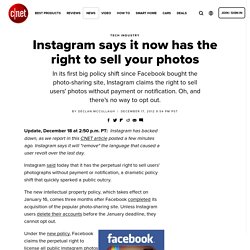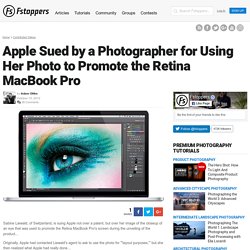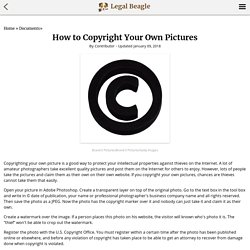

Publicity Rights in a Photograph – Zvulony & Co. By Gil Zvulony, Toronto Internet Lawyer Publicity rights are rights that protect the commercial value of a person’s celebrity status.

Publicity rights are sometimes referred to as personality rights, and the two terms are often used interchangeably. The Nature of Publicity Rights Publicity rights differ from privacy rights in that privacy rights protect against unwanted intrusion into an individual’s private space, whereas publicity rights deal with the individual’s right to control the exploitation of his or her image. As Justice Lederman clarified, in Gould Estate v. The right of privacy is considered a personal tort and is designed to protect an individual’s interest in dignity and peace of mind. How Publicity Rights are Infringed. Legal Rights in a Photograph – Zvulony & Co. Introduction by Gil Zvulony A photograph is two things in one: it is on the one hand a representation of something or someone, and then again it is its own work of art, separate from what or who it represents.

This raises, and has for a long time raised, some interesting issues with regard to the law. Who owns the rights in a photograph, the person who commissioned the picture or the person who took the picture? What rights does the subject of the photograph possess? (For a discussion of sharing photos on social media read: Facebook – Who owns My Photos) There are many different rights in a photo. Canadian law on rights in a photograph is always in flux. Copyright Law Canada’s Copyright Act was changed in 2012. Moral Rights S. 14 of the Copyright Act also grants “moral rights” to an author, which prevent someone from making alterations to the author’s work if those alterations will affect “the integrity of the work,” and require the author to be given proper credit for the work. Conclusion. Yahoo fait désormais partie dâOath. Pinterest is many things to many people.

For some it’s a collection of things you aspire to own, for others a source of DIY inspiration, or even a way to pitch an advertising campaign. While it definitely appeals more to some than others, you can’t deny its overwhelming command of the social market and its incredible growth. But while we’re all trying to wrap our heads around what exactly this stunning new platform is and does, it’s becoming fairly clear it’s toeing a dangerous line concerning copyright infringement. Instagram says it now has the right to sell your photos. Update, December 18 at 2:50 p.m.

PT: Instagram has backed down, as we report in this CNET article posted a few minutes ago. Instagram says it will "remove" the language that caused a user revolt over the last day. Instagram said today that it has the perpetual right to sell users' photographs without payment or notification, a dramatic policy shift that quickly sparked a public outcry. The new intellectual property policy, which takes effect on January 16, comes three months after Facebook completed its acquisition of the popular photo-sharing site.
Unless Instagram users delete their accounts before the January deadline, they cannot opt out. Under the new policy, Facebook claims the perpetual right to license all public Instagram photos to companies or any other organization, including for advertising purposes, which would effectively transform the Web site into the world's largest stock photo agency. Facebook did not respond to repeated queries from CNET this afternoon. Apple Sued by a Photographer for Using Her Photo to Promote the Retina MacBook Pro. Sabine Liewald, of Switzerland, is suing Apple not over a patent, but over her image of the closeup of an eye that was used to promote the Retina MacBook Pro's screen during the unveiling of the product...

Originally, Apple had contacted Liewald's agent to ask to use the photo for "'layout purposes,'" but she then realized what Apple had really done... Now, Liewald isn't just seeking payment for the use of the image in Apple's promotional material: she wants a piece of every Retina MacBook Pro that was ever sold, since it could be argued that the image helped the product sell more units than otherwise might have been sold. No matter the fraction, that's a ton of cash for one image. And this could be the largest photo settlement we've seen in...ever. Via AppleInsider. How to Copyright Your Own Pictures. Copyrighting your own picture is a good way to protect your intellectual properties against thieves on the Internet.

A lot of amateur photographers take excellent quality pictures and post them on the Internet for others to enjoy. However, lots of people take the pictures and claim them as their own on their own website. If you copyright your own pictures, chances are thieves cannot take them that easily. Open your picture in Adobe Photoshop. Create a transparent layer on top of the original photo. Create a watermark over the image. Register the photo with the U.S.